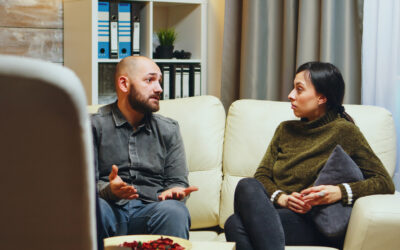By Amir Levine, PhD, LCSW and Veronica Vaiti, LCSW-R
 Exploring what love is, is no light task. Just look at the multitude of songs, poems, stories, paintings and sculptures that have been created throughout history on the basis of this magical four letter word. Innumerable gestures of honoring love and the countless attempts to understand love’s phenomenology including love’s joy as well as love’s pain has given life to a wealth of artistic masterpieces and gems. Yet despite these timeless musings, reflections and creations, people continue to wrestle with understanding what love really is and more specifically how to love.
Exploring what love is, is no light task. Just look at the multitude of songs, poems, stories, paintings and sculptures that have been created throughout history on the basis of this magical four letter word. Innumerable gestures of honoring love and the countless attempts to understand love’s phenomenology including love’s joy as well as love’s pain has given life to a wealth of artistic masterpieces and gems. Yet despite these timeless musings, reflections and creations, people continue to wrestle with understanding what love really is and more specifically how to love.
There are a number of things that make love and loving tricky to understand and navigate. For one, Love means many different “things” to many different people. And because love isn’t at all a “thing” with clear edges that you can touch and hold and therefore make more clearly knowable or nameable, our human nature wants to make it so. We tend to favor certainty and a sense of control, albeit a false one at times over the gray area in life and love most certainly falls into the gray area of lfe. Love and the act of loving is primarily a fluid visceral experience, ever-changing and ephemeral and not a fixed state of being, and so we struggle with the ups and downs and ins and outs of it or tend to fight against or run from it all together when things become murky, unclear or uncomfortable.
Also, the love we are talking about here is the love that is always found in relation to another person, concept or idea even. And depending upon the context in which love is found and who the love is shared between, different expectations, needs, conditions and challenges ensue. Romantic love, familial love, brotherly love, platonic love, even artistic love or divine love imply their own loose guidelines for the expression of that particular love. But when you get down close to examine the individual parties involved in the love, you’ll see that not every rule applies unanimously.
What about rules for asserting needs for alone time while in the context of a relationship? Whereas one person may understand, accept and support the need, another may takes it personal, like a rejection, and feel sick about it. What rules can we rely upon there to protect against the hurt and confusion that may arise while negotiating matters such as these? Or what of dealing with different styles of addressing conflict? Why doesn’t your spouse or child want to talk about an important issue when you want to in the way that feels comfortable for you?
Which leads to the next issue – the misconceptions and unrealistic expectations people have about love and loving. The idea that once you find someone to love, that they “should” love you back in a particular way or that they should or ought to accept you as is, unconditionally, with wrinkles and foibles and all doesn’t bode well for ever-lasting love. In fact it often leads to grave relationship fractures, heartaches and resentment.
Or there’s that idea that love should only leave you feeling good, communication should be easy when you are in love and any other conflict or uncomfortable feelings that arise must be a sign that something is bad or wrong. Conflict or discomfort are definitely a sign of something, perhaps where work is needed in the loving relationship, not necessarily a reason to dis the relationship all together. Plus, with this perspective it would be challenging to get past the first month let alone the first 3 months of any new relationship.
Love can feel exhilarating, buoyant and empowering, enlivening and nourishing, dreamy and intoxicating, safe, warm, cozy, comforting and satisfying. And love can also feel dissatisfying or disappointing, elusive or engulfing, confusing, maddening, scary, hurtful or painful. We don’t like these experiences and often struggle with knowing what to do when they arise. Additionally, love inevitably implies change and loss, in fact they are two sides of the same coin, love and loss. We need to learn to hold both sides with equal amounts of care and respect and compassion.
When we open ourselves up to caring about another person and allow them in turn to care for us, we not only expose ourselves and our vulnerabilities but we let them into our life. When we really allow ourselves to love fully, we are in effect allowing ourselves and our life to be changed by the other and are working on forging a mutual bond or reliance with our loved one. This can be terrifying, for any change can be hard on our systems and anyone you love, you can ultimately lose either through either death or separation.
So we are we to do? For love to grow and flourish, it requires certain ingredients and practices. Because love is a force encouraging us to move closer to who we claim to love, we must also learn to simultaneously negotiate our fears and vulnerabilities which will most certainly get rubbed in the movement. Clarifying and clearing up any limiting ideas or misconceptions about love and practicing with being open to different perspectives on how to love is essential.
To love means practicing with acceptance and allowing and cutting the tendency to blame or fault. Allowing yourself to be seen for who you really are and likewise, seeing your loved one for who they really are. Learning to listen to and make compromises and space for one another’s differences and flaws and limits. Working on appreciating the individual needs, nuances and idiosyncrasies that exist doesn’t necessarily mean you have to like them, but you try to respect them and make accommodations for them. To love another requires work and effort and entering into the gray and uncomfortable. And also meeting our fears and past hurts that get touched in the process can be invaluable and a must.
Love wants to be, yet we are great at disrupting the being, especially if that just being isn’t what we prefer. Love is a force, and energy that wants to inspire, ignite our passion, help us grow and realize our potential, yet we shut down and shut out and when we stumble and fall we don’t always know how to get back up and so we stay down. Love wants life to flourish and yet fear and anger or ignorance often block the flourishing. But if we listen close enough, we can hear love’s whispers through the mundane, letting on just how profound and ephemeral and beautiful everything really is. What do you choose to listen to?



